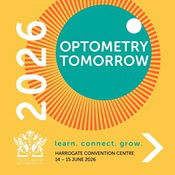General News
Why Medical Cannabis Could Save the NHS billions
Pharmaceutical Prices set to Rise Amidst Trump Tariff Rollout:
Why Medical Cannabis Could Save the NHS billions
UK is the largest producer and exporter of medical cannabis, yet red tape forces Britain to import 79% of prescriptions
Jon Robson, CEO and founder of Mamedica – the UK’s leading medical cannabis clinic has produced this discussion document.
Following a series of tariffs imposed by the US, the White House has indicated that further tariffs on pharmaceutical products will be announced soon. Reuters has reported that the price of drugs in the UK could rise by over 10%, depending on the severity. The US is the largest buyer of British medicines, with exports valued at £6.5bn in 2024.
However, US tariffs on raw pharmaceutical materials will raise production costs, which will be passed down the supply chain, ultimately driving up drug prices for the NHS.
With the NHS already under financial strain, these price hikes could be catastrophic. In this context, medical cannabis, which can be prescribed for a wide variety of conditions for symptomatic relief, presents a viable alternative.
Currently, the UK is the largest producer and exporter of medical cannabis, yet still imports 79% of its prescription cannabis, largely due to regulatory challenges in growing the sector.
Since legalisation in 2018, medical cannabis has become a popular treatment for various chronic conditions, including ADHD and arthritis. As a result, the demand for prescriptions has grown significantly, prompting companies such as Dalgety to scale production to meet the rising market need, which is expected to reach 4,000 prescriptions per month by January 2025.
The UK now leads globally in medical cannabis production, but still imports the vast majority of its cannabis from markets like Spain, mainly due to regulatory challenges that hinder business growth.
Mamedica has seen a 1250% increase in patients, prescribing to nearly 10,000 people, despite these hurdles, but more could be done to grow the industry within the UK to create more security for the domestic pharmaceutical sector.
The UK’s alternative therapies market has experienced unprecedented growth, with businesses like Mamedica growing by 675,000% in just five years, alongside 10% month-on-month growth.
Research by Mamedica also reveals that a third of Britons want access to medical cannabis, highlighting the growing demand for alternative therapies.
Despite this, restrictive regulations threaten to slow progress, forcing patients to seek treatment elsewhere. With the alternative therapy sector so rigorously scrutinised and regulated, and the need for empirical research needed where the key determining factor for success in medication is based in anecdotal evidence, investors have so far been disincentivised to invest. This has left the NHS exposed to price increases for traditional medicines, which could be incurred from US tariffs.
Points for discussion:
- How growing the medical cannabis sector in the UK could help alleviate sudden financial pressures on the pharmaceutical industry
- The effect tariffs could have on the pharmaceutical and medical cannabis industries
- What more the government could be doing to help alternative therapy businesses scale in the UK
- The viability of medical cannabis as a treatment for symptomatic relief
Mamedica is a private clinic with linked pharmacy which specialises in cannabis based prescriptions
20 Procter St, London WC1V 6NX, United Kingdom
























